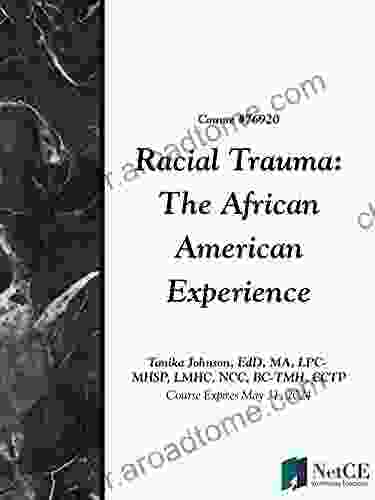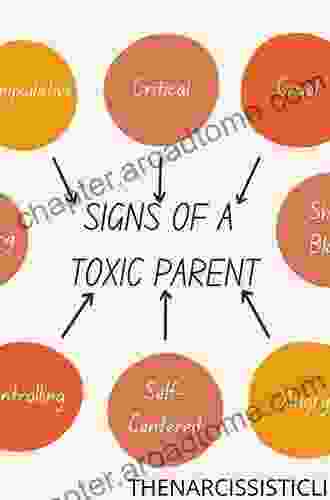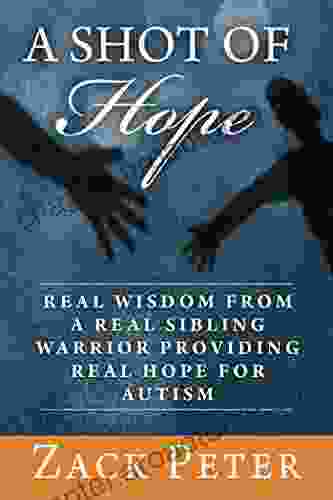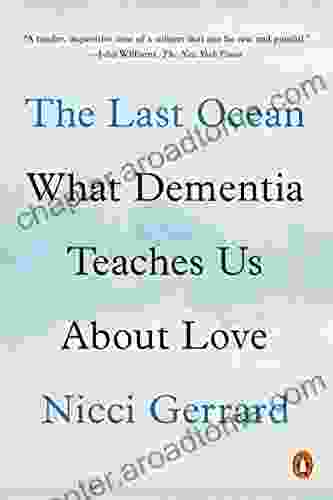Cognitive Approaches To Obsessions And Compulsions: Exploring the Mind Behind the Behavior

Obsessions and compulsions are common mental health challenges that can significantly impact an individual's daily life. These conditions are characterized by intrusive, unwanted thoughts (obsessions) and repetitive, ritualistic behaviors (compulsions) that are often driven by anxiety or distress.
Cognitive approaches to obsessions and compulsions focus on the role of maladaptive thinking patterns and beliefs in the development and maintenance of these conditions. Therapists using cognitive approaches aim to help individuals identify and challenge their negative thoughts and assumptions, thereby reducing the anxiety and distress that fuel their obsessions and compulsions.
5 out of 5
| Language | : | English |
| File size | : | 6007 KB |
| Text-to-Speech | : | Enabled |
| Word Wise | : | Enabled |
| Print length | : | 530 pages |
Core Principles of Cognitive Approaches
Cognitive approaches to obsessions and compulsions are based on several key principles:
- Cognitive distortions: Individuals with obsessions and compulsions often engage in cognitive distortions, such as catastrophizing, overgeneralization, and black-and-white thinking. These distortions lead to unrealistic and exaggerated perceptions of threat and danger.
- Cognitive avoidance: Individuals with obsessions and compulsions tend to avoid situations or thoughts that trigger their anxiety or distress. This avoidance reinforces the cycle of obsessions and compulsions and prevents them from confronting and challenging their negative thoughts.
- Safety behaviors: Individuals with obsessions and compulsions often engage in safety behaviors, such as checking, reassurance-seeking, or excessive cleaning. These behaviors are aimed at reducing anxiety in the short term but ultimately perpetuate the cycle of obsessions and compulsions.
Types of Cognitive Approaches
There are several different types of cognitive approaches to obsessions and compulsions, including:
- Cognitive Behavioral Therapy (CBT): CBT is a well-established and widely used treatment for obsessions and compulsions. It involves identifying and challenging negative thoughts and beliefs, as well as developing coping mechanisms to manage anxiety and distress.
- Acceptance and Commitment Therapy (ACT): ACT focuses on helping individuals accept their thoughts and feelings, rather than trying to control or suppress them. It also involves setting meaningful goals and committing to values-based actions.
- Metacognitive Therapy (MCT): MCT targets the metacognitive processes involved in obsessions and compulsions, such as the tendency to overestimate the importance of thoughts and the belief that they must be controlled.
Research and Evidence
Numerous studies have demonstrated the effectiveness of cognitive approaches to obsessions and compulsions. For example:
- A meta-analysis of 20 studies found that CBT significantly reduced obsessional symptoms, compulsive symptoms, and anxiety compared to control conditions.
- Another meta-analysis of 12 studies found that ACT was effective in reducing obsessional and compulsive symptoms and improving psychological well-being.
- Research on MCT has shown it to be effective in reducing obsessions and compulsions, as well as improving psychological flexibility.
Benefits of Cognitive Approaches
Cognitive approaches to obsessions and compulsions offer several benefits, including:
- Reduced obsessions and compulsions: Cognitive approaches effectively reduce the frequency and intensity of obsessions and compulsions.
- Improved anxiety and distress: Cognitive approaches help individuals manage anxiety and distress by challenging their negative thoughts and developing coping mechanisms.
- Enhanced psychological well-being: Cognitive approaches improve overall psychological well-being by promoting self-acceptance, values-based living, and psychological flexibility.
- Long-term maintenance: Cognitive approaches have been shown to provide long-term maintenance of treatment gains, preventing relapse and recurrence of obsessions and compulsions.
Cognitive approaches to obsessions and compulsions provide a comprehensive framework for understanding and treating these common mental health challenges.
By focusing on the role of maladaptive thinking patterns and beliefs, cognitive approaches effectively reduce obsessions and compulsions, improve anxiety and distress, and enhance overall psychological well-being.
If you or someone you know is struggling with obsessions and compulsions, consider seeking the support of a qualified mental health professional trained in cognitive approaches to help you achieve lasting recovery.
5 out of 5
| Language | : | English |
| File size | : | 6007 KB |
| Text-to-Speech | : | Enabled |
| Word Wise | : | Enabled |
| Print length | : | 530 pages |
Do you want to contribute by writing guest posts on this blog?
Please contact us and send us a resume of previous articles that you have written.
 Book
Book Novel
Novel Page
Page Chapter
Chapter Text
Text Story
Story Genre
Genre Reader
Reader Library
Library Paperback
Paperback E-book
E-book Magazine
Magazine Newspaper
Newspaper Paragraph
Paragraph Sentence
Sentence Bookmark
Bookmark Shelf
Shelf Glossary
Glossary Bibliography
Bibliography Foreword
Foreword Preface
Preface Synopsis
Synopsis Annotation
Annotation Footnote
Footnote Manuscript
Manuscript Scroll
Scroll Codex
Codex Tome
Tome Bestseller
Bestseller Classics
Classics Library card
Library card Narrative
Narrative Biography
Biography Autobiography
Autobiography Memoir
Memoir Reference
Reference Encyclopedia
Encyclopedia Sheila Tucker
Sheila Tucker Nirav Shah
Nirav Shah Michael Shapiro
Michael Shapiro Michael Baldwin
Michael Baldwin Patrick Monroe
Patrick Monroe Nancy Mindick
Nancy Mindick Scott Anderson
Scott Anderson Michael R Young
Michael R Young Paul E Harris
Paul E Harris Miss Krystle
Miss Krystle Nellie Bly
Nellie Bly Michael Keith
Michael Keith Michael J Mchugh
Michael J Mchugh Rosanne Lurie
Rosanne Lurie Morgan Daimler
Morgan Daimler Michelle Gringeri Brown
Michelle Gringeri Brown Michael Mckenna
Michael Mckenna Sholem Asch
Sholem Asch Nahko Akando
Nahko Akando Mrs Mary Mack
Mrs Mary Mack
Light bulbAdvertise smarter! Our strategic ad space ensures maximum exposure. Reserve your spot today!
 Graham BlairFollow ·3.7k
Graham BlairFollow ·3.7k Allen ParkerFollow ·15.6k
Allen ParkerFollow ·15.6k Kevin TurnerFollow ·19.4k
Kevin TurnerFollow ·19.4k Fabian MitchellFollow ·12.6k
Fabian MitchellFollow ·12.6k Phil FosterFollow ·12.8k
Phil FosterFollow ·12.8k Chadwick PowellFollow ·19.9k
Chadwick PowellFollow ·19.9k Theo CoxFollow ·19.8k
Theo CoxFollow ·19.8k Ivan TurnerFollow ·17.1k
Ivan TurnerFollow ·17.1k

 Samuel Beckett
Samuel BeckettPortrait of the Plague Doctor: A Chilling Tale of Fear...
Prologue: A...

 Elliott Carter
Elliott CarterTrends in Modeling and Simulation Studies in...
Unveiling the Convergence of...

 Natsume Sōseki
Natsume SōsekiCells For Kids: Science For Children
Unlock the Microscopic...

 Anthony Wells
Anthony WellsUnlock the Power of Understanding: Embrace the African...
Embark on a Journey of Truth,...

 Forrest Reed
Forrest ReedBreaking Free: Healing from Toxic Relationships Between...
Are you struggling...
5 out of 5
| Language | : | English |
| File size | : | 6007 KB |
| Text-to-Speech | : | Enabled |
| Word Wise | : | Enabled |
| Print length | : | 530 pages |














